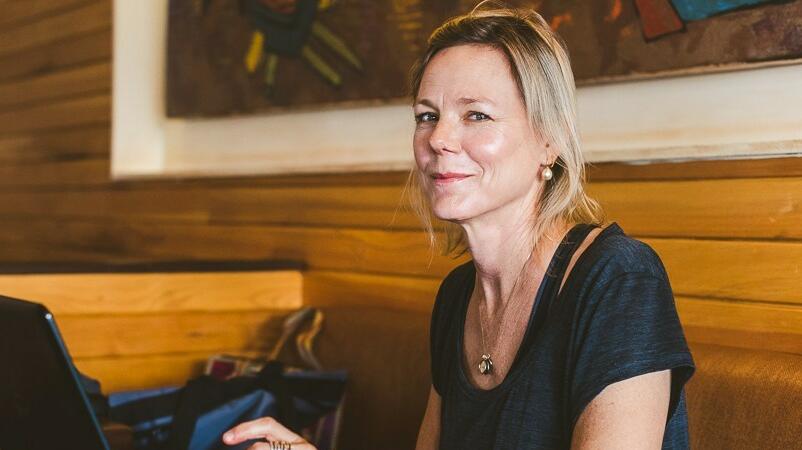
Professor Sarah Staedke is one of Liverpool School of Tropical Medicine’s (LSTM) new professorial appointments. Sarah is joining us from London School of Hygiene and Tropical Medicine where she is Professor of Malaria and Global Health, based in Uganda. We spoke to her about her new role, the big challenges in global health and local sporting rivalries.
Hi Sarah. Welcome to LSTM. What will you be doing here?
Hello, from September I’ll be Professor of Malaria and Global Health at LSTM. I’ll also be Lead Clinical Epidemiologist for LSTM’s research collaboration with KEMRI (Kenya Medical Research Institute) and CDC (US Centers for Disease Control) in Kisumu, Kenya. It's a mouthful of a job title!
Can you tell us a little bit about your background and your specialisms?
I am a clinical epidemiologist and did my medical training in the US - I trained in internal medicine and infectious diseases - then did my postgraduate training at the London School of Hygiene and Tropical Medicine, where I've been on faculty for over 15 years. I've worked in Uganda since 1999 conducting research on malaria, working with collaborators from the Infectious Diseases Research Collaboration, the University of California, San Francisco, and others.
Why are you coming to work at LSTM?
Liverpool has a long-standing collaboration with KEMRI and the CDC - the Centre for Global Health Research in Kisumu. And because of this long-term collaboration they have an excellent research infrastructure, and a significant research portfolio in Western Kenya. LSTM was looking for an epidemiologist to work alongside Feiko ter Kuile and others, to help expand their research capacity and direct the future growth of this collaboration – further developing the site as a research hub - and created this new post to do just that. I thought it was a really exciting opportunity.
Are you going to have much time for actually hands-on research as part of this role?
Yes, I hope that I will. There will be definitely a managerial component to the job, but I think a lot of my time will be continuing the work that I've done in Uganda leading large research studies. I have worked with Martin Donnelly, Janet Hemingway, Amy Lynd and others from LSTM on large trials to evaluate the impact of bed nets distributed by the Ugandan Ministry of Health and I'm expecting to be involved with similar vector control studies in Western Kenya.
It sounds like you have quite strong links with LSTM already. What else will your role involve?
In addition to expanding research capacity and collaboration, I think a key part of the role will be to help recruit and mentor junior scientist, investing in local investigators and research leaders in Kenya. I want to help ensure sustainability and local ownership of the research and the collaboration, and to help expand the research portfolio for both malaria and non-malaria illnesses in Kenya. I think that my goal is really to help strengthen capacity for research and knowledge transfer.
As you know, LSTM is currently preparing for its 125th anniversary. What do you see as the big shifts in global health - the big questions - we should be addressing in the coming years?
I think we've been through a very interesting time with COVID and the pandemic, and I think it's caused a shift in perspective on many fronts. Pandemic preparedness and resilience against climate
change and pandemic risks are on everyone's mind. With regards to malaria, there are new, exciting interventions that are becoming available including malaria vaccines, monoclonal antibodies and expansion of chemoprevention - using medicines to prevent malaria in vulnerable populations. I think there will be a lot of questions about how to layer these interventions to maximize impact and tackle malaria, moving towards elimination in high-burden areas like in Western Kenya.
So, it's not all doom and gloom.
No, it’s not. It's an exciting time with new tools available. And in global health there is a big shift in terms of perspective, with more focus on ensuring sustainability, equity, diversity and inclusion in global health.
LSTM is also thinking about how we bridge the gaps in health and scientific capacity around the world. It sounds like it is going to be a big component of your new role.
Yes, I see that it will be. Having worked in Uganda for over 20 years, I've gained a lot of hands-on experience helping to build capacity and transfer knowledge and capacity. And I look forward to applying my skills and experience in Western Kenya - ideally to work myself out of a job!
My final question was going to be whether you support Everton, Liverpool, Tranmere or other, but judging by your accent it’s ‘other’?
Well, you know, as an American I'm a bit naive when it comes to football. But a good friend of mine just sent my children and I some shirts for Liverpool so I think I'm going to have to adopt Liverpool as my team.
That’s great – thanks!